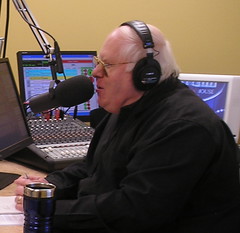Thursday, September 21, 2006
Election worries
Election watchdogs fear similar problems or worse – perhaps even fraud – as thousands of U.S. counties use such machines for the first time in November's general elections. In Texas, most big counties, including Dallas, have already made the switch. But as smaller counties switch over, many voting experts are warning that people may face long waits at the polls, wrong vote tallies or recounts.
voting
Some also fear that without a paper record of how people voted – which Texas law does not require – election results could be lost in any system meltdown."If history is any guide, we have the potential to see problems in 30 percent of counties this fall," said Kimball Brace, president of the nonpartisan political consulting firm Election Data Services Inc. Since 2000, about 46 percent of counties have switched voting equipment – most of those in the past two years, according to company figures.
Mr. Brace projects that 40 percent of voters will use electronic machines in November, many for the first time.
The change is part of the long hangover from the hanging-chad debacle that fouled the 2000 presidential election. In 2002, Congress approved the Help America Vote Act, requiring that all voters have access to electronic voting, and lawmakers gave states and local governments $3.9 billion to do it by January 2006.
That meant a rush to have machines up and running by the 2006 primaries, with some counties choosing to mix electronic ballots with more traditional paper-scan methods.
The Times-Herald in Forrest City ran an informative item on Tuesday's problems over in the Delta. ESS gets praise from local officials in this one.
Tuesday’s countywide school election was scheduled to be a test run for the county’s new election equipment.
St. Francis County Election Commission Chairman Frederick Freeman said the test failed.
According to Freeman, preparation prior to the election and out in the field on election day eventually led to issues which left election officials tallying votes into the early morning hours today.
“We performed poorly in our prep work prior to the election and then out in the field on election day with problems at several of the polling sites. That ended up affecting our counting last night,” said Freeman.
The delays started shortly after the close of polls at 7:30 p.m., and actual counting did not begin until after 9 p.m.
“The information did not come in as requested from several locations, and that delayed us in getting started. Primarily, our computer chips, the tapes, used ballots, sign-in sheets, PEB’s (Personal Electronic Ballots) and PCM cards were supposed to be placed in the old ballot boxes and brought in, but there were cases where pertinent information was not where it needed to be, and that even included some of the information being left at a polling site,” he said.
